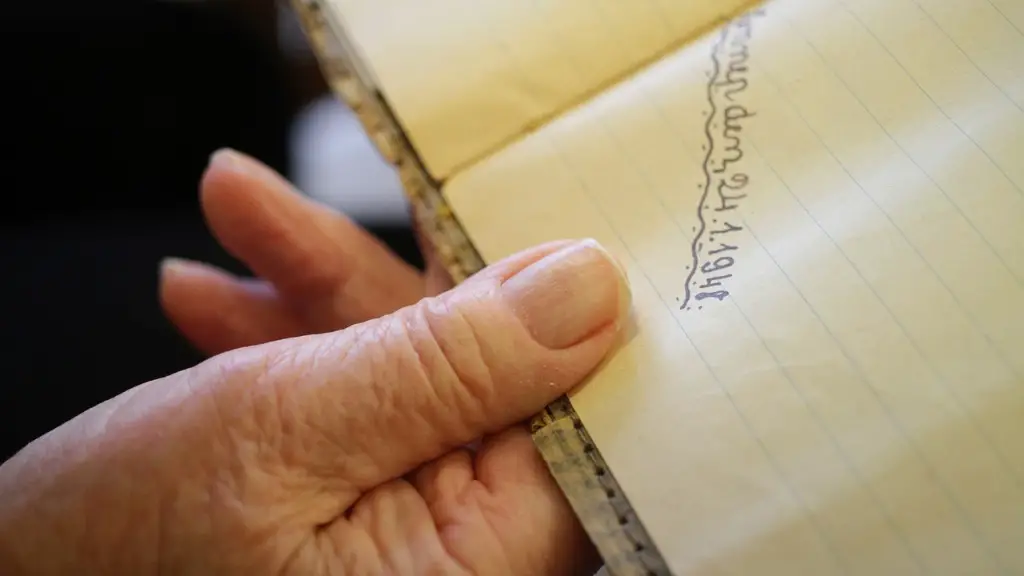His Education
Gary Soto is an American poet and novelist who was born in Fresno, California in 1952. He is best known for his autobiographical poetry about the emotions and experiences of Mexican American youth growing up in Fresno. He grew up in a largely poor neighborhood and attended Fresno City College. It was during his tenure at Fresno City College that Soto developed a strong interest in literature and poetry.
He began to read a great deal of literature, both by other authors and also his own work. He studied poetry and other writing forms, as well as exploring the techniques and language used in novels and magazine articles. This period of study and exploration laid the foundation for his eventual career as an author and poet.
Valuable Experiences
Soto’s education and exploration of language and literature not only helped him refine his writing techniques but also to gain valuable insight into the minds and emotions of the characters and persons he wrote about. These experiences, coupled with his own background and growing up as a Mexican American youth, gave him the skills, determination, and motivation to craft his works into stories that others could connect with and appreciate.
In 1972, Soto published his first poem. This poem and those that followed reflected his own personal experiences and those of other Mexican American youths. His works have since earned him numerous awards and accolades, including a National Endowment for the Arts grant, the Literature Award from the Hispanic Heritage Foundation, and the prestigious Guggenheim Fellowship.
Learning From Real Life
Soto’s approach to his writing has been characterized by an intense desire to understand, in great detail, the lives of the people he writes about. He has said that he draws much of his inspiration from “real-life events” and that his work is “based on my own intuitive recollections of the people and events I have known”. This is where Soto parted from the traditional poetic paradigm and adopted an autobiographically focused approach to writing, which has become his signature style.
His life experiences and observations thus form the basis of his works, both in terms of content and subject matter, but also in terms of the emotions and feelings that he seeks to capture and express. By combining his own personal experiences, observations and emotions with those of others, Soto has been able to craft some of the most emotionally powerful and emotionally stirring poetry of our times.
Social Inequality
In addition to exploring themes related to his own personal experiences, Soto’s writing has also focused heavily on social inequality and injustice. This can be seen in his works such as ‘Bigger than a Breadbox’, ‘The Tale of Sunlight’, and ‘Passing for White’. Through his work, Soto seeks to highlight the collective suffering of individuals who have been marginalized and subjected to injustice, in order to expose and address the systemic issues that have caused inequality and injustice.
For Soto, writing is a form of activism. It is evident in his work that he hopes to bring about social change and to inspire others to do the same. He hopes to draw attention to the importance of cultural diversity and the need to strive for equality and justice.
Insightful Observations
In his writing, Soto also attempts to challenge readers to look inwards and reflect on the social conventions they take for granted. He wants us to carefully consider the power of our words, our attitudes, and our beliefs, and how they impact both ourselves and those around us. Through his own insightful observations, Soto is able to capture and explore themes of injustice in a way that enlightens and educates readers.
Today, Soto is widely considered to be one of the foremost American poets, and his work continues to be celebrated and admired by readers of all ages and backgrounds. His works have inspired and transformed many readers, proving that his decision to write poetry was indeed the right one.
Social Criticism
Social justice is often a prominent theme in Soto’s poetry and prose. He makes a point of highlighting the inequalities between different cultural, racial, and economic groups. His works serve to draw attention to the oppression and marginalization that those on the fringes of society face, often due to their ethnicity or economic status.
Soto’s works often explore the effects of poverty, racism, and other forms of oppression and unfairness. Through his works, he sends a powerful message of hope and affirmation, believing that recognition and understanding of these issues will bring about greater awareness and positive changes in society.
Exploring Identity
In writing about his own experiences, Soto not only explores themes of social injustice and inequality, but also uses his works to explore his own identity and sense of belonging. He often writes about his childhood, his family, and his struggles as a Mexican American growing up in Fresno.
He uses his works to paint a vivid portrait of his formative years and to explore the experience of growing up with two distinct cultures and two language systems. By exploring themes of identity and belonging, Soto is able to give readers a window into the experiences of Mexican Americans and those who grow up within similar dual identities.
Conclusion
Gary Soto’s decision to write poetry has enabled him to bring to life the realities of Mexican American culture and to share his own experiences and uncertainties of growing up as a Mexican American youth. Through his works, Soto has brought attention to the plight of the marginalized, the injustices faced by minority populations, and the need for social reform.
Soto has also used his writing to explore the theme of identity and assimilation. He has explored personal experiences in order to better understand and accept the ambivalence of dual identity, and to celebrate the unity of cultures. Through his works, Soto has crafted a powerful narrative that speaks to a wide readership, inspiring and transforming lives.




